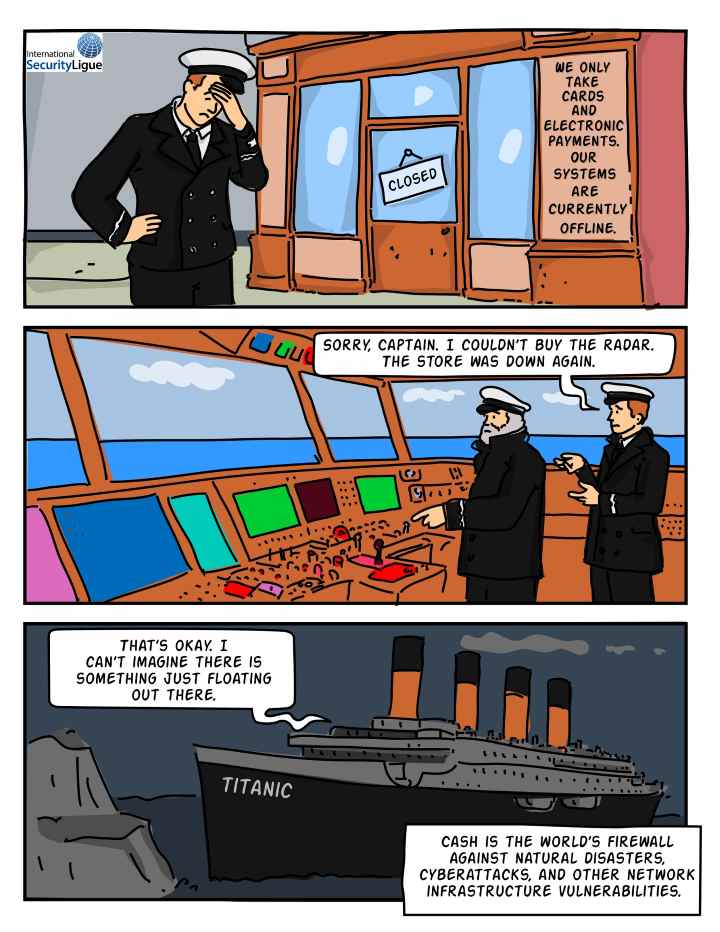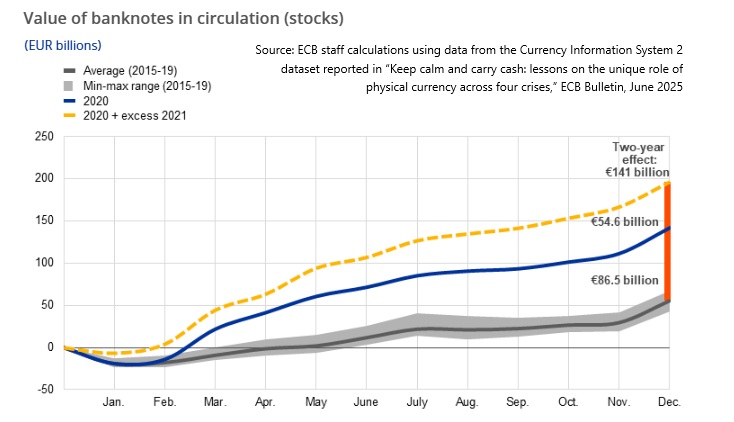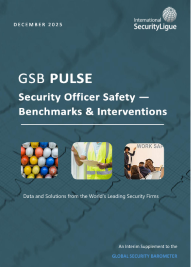
In the on-going debate over how much the world can or should rely on electronic forms of payment, new research offers a cautionary conclusion: When any type of crisis hits—even events that don’t immediately threaten electronic payment systems—people cling to cash. The study is a vital warning to policymakers debating the role of cash in an increasingly digital world.
Perhaps, in a utopian world, cash would be less relevant. In the world we live in, however, physical currency is critical—and maintaining the ability to turn to cash in times of crisis requires upkeep. “Ensuring that cash and its distribution network are legally protected is critical,” explained Tanja Kulisch-Ziemens at the International Security Ligue General Assembly in September.
Port in a Storm
In certain crises the lifeline that cash provides is obvious, like the massive blackout in Spain and Portugal recently that halted electronic payments and stranded 50 million customers and businesses for 22 hours. The outage, and dozens of others that happened globally in 2025, underscore the criticality of cash even as some may choose payment alternatives when all is good.
“This event transformed cash from one payment option among many into the only means of payment for many of those who held it or could access it, as existing banknotes remained perfectly functional even when digital systems and many ATMs were inoperable,” explained the study published in a recent European Central Bank Bulletin (“Keep calm and carry cash: lessons on the unique role of physical currency across four crises,” ECB Bulletin, June 2025).

Cash in a Crisis
Research found that cash’s criticality is not only on display during events that pose a direct threat to payment systems, but in all manners of upheaval. Through examinations of daily data in times of turmoil, the study quantified shifts in demand in disparate system shocks: public health, military, and financial.
COVID-19 pandemic hits. During the pandemic people stocked up on euro cash: by the end of 2020 net banknote circulation rose by over €140 billion, about €85 billion more than the typical annual increase before COVID. A sharp 90-day rush for cash after late January 2020 nearly doubled daily issuance and added roughly €19.5 billion to circulation, driven by fewer deposits back to banks and precautionary hoarding even as everyday cash use fell.
This points to people immediately turning to cash for liquidity during high uncertainty due to an unprecedented event — additive to longer-term precautionary hoarding due to ongoing anxieties.

Russia invades Ukraine. Russia’s invasion of Ukraine in February 2022 caused a sharp, localized rush for euro cash in neighboring countries, with issuance spiking up to 10 standard deviations above normal in border states. The surge reflected precautionary hoarding tied to proximity and fears about institutional and infrastructure stability, despite these countries’ high use of cashless payments.
Surge in cash demand is a common response to uncertainty caused by armed conflicts and geopolitical tensions, and fears they raise about institutional stability, state capacity, and the resilience of critical infrastructures.
Greece suffers sovereign debt crisis. During Greece’s sovereign debt crisis banknote demand surged sharply, with average daily issuance about €72 million above expected levels over seven months and a cumulative excess of roughly €11.2 billion. “This rush for cash closely tracked the Composite Indicator of Sovereign Stress, showing that political and market turmoil and fears of capital controls drove people to hoard physical currency,” according to researchers.
Key Takeaway
Data proves that people have a significant psychological reliance on physical currency and demonstrates the unique value of cash as a safe haven asset and an essential contingency payment instrument for emergencies. When any type of crisis hits—not just those that threaten payment systems—people turn to cash. Protecting the cash ecosystem, therefore, is foundational to building resilient societies.
The results suggest that the unique attributes of cash – the fact that it is tangible, resilient, offline and widely accepted – become paramount during crises and can also be leveraged for crisis preparedness.” — ECB Economic Bulletin, June 2025






